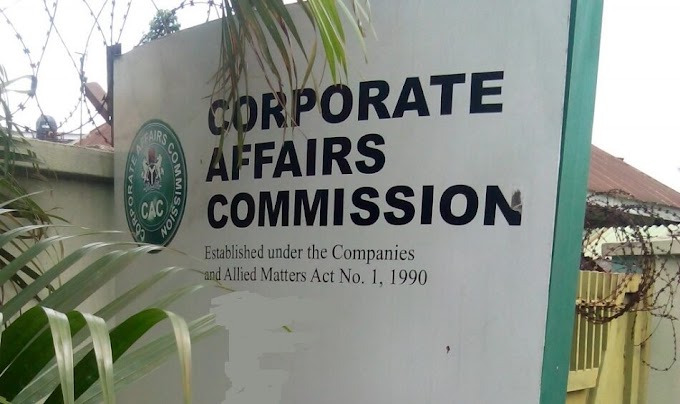When executed correctly, investing in real estate offers a unique blend of stability, long-term wealth generation, and the security of owning a physical asset. Unlike more volatile investments like stocks or crypto, real estate provides a more secure and predictable source of income through rental yields and property appreciation over time. It also acts as a safeguard against inflation, as property values and rental income usually increase with rising costs of living.
Accordingly, and based on my experience in representing diverse clients in real estate deals over the years, I have carefully curated 5 legal tips you can implement to protect and maximise your investments in real estate under the following headings: 1) Due Diligence; 2) Unnamed Purchaser; 3) Special Purpose Vehicle (SPV); 4) Deed of Assignment or Deed of Sublease?; and 5) Tenancy/Lease Agreement.
1. Due Diligence
To begin with, no matter how clever your strategy may be regarding real estate investing, the first step is to carry out thorough due diligence investigations before investing in any property. Detailed due diligence allows you to make smart purchases. During your due diligence process, your answers to the following questions should inform your decision on whether to proceed, exit or renegotiate a real estate transaction: (1) Have I evaluated all the cost implications of purchasing, managing, perfecting my title, and/or developing the property? (2) Does the seller have a good title to the property? (3) Have I or can I comply with all relevant laws regulating the sale, management, perfection of title and/or development of the property?
To learn more about real estate due diligence, I made a comprehensive note on the subject matter in the following article by me: Real Estate Due Diligence (in Nigeria): A Comprehensive Note
2. Unnamed Purchaser
This strategy comes in handy when you intend to invest in real estate solely to resell the property to another person or entity. To illustrate, a seller (A) sells a property to you, the purchaser (B). Before you can transfer your ownership (title) in the property to a subsequent purchaser (C), the law requires you to perfect your title to the property by applying for the Governor’s or the Honourable Minister’s consent on the transaction between A and B, pay stamp duty charges and get B’s title registered with the government. Apart from the cost implications, the perfection of your title to a property can be time-consuming, sometimes taking years.
A clever way to navigate this situation is by requesting A to execute title documents (e.g. Deed of Assignment) for the transfer of title in the property to an unnamed purchaser. This is done by leaving the name of the purchaser blank in the title documents. As such, in a subsequent transfer of the property from B to C, B will be transferring a valid title to C by simply inputting C’s name in the title documents using a device such as a typewriter. This way, the title documents will be between A and C, thereby bypassing B.
Notwithstanding the value of the real estate, this strategy saves you a lot of money and time regarding perfecting your title to the property before transferring a valid title to a subsequent purchaser.
3. Special Purpose Vehicle (SPV)
In real estate investment, an SPV is a limited liability company incorporated specifically to hold a specific property or series of property investments. Its operation is restricted to this singular focus, unlike other companies registered to carry on a diverse range of business activities. A property owned by an SPV with a perfect title is more attractive to investors, whose focus will be to acquire the SPV to own the property.
To further explain this strategy, I once worked on the sale and purchase of a multi-floor commercial building located at Victoria Island, Lagos State with a consideration of $30,000,000.00 (Thirty Million United States Dollars only). An SPV owned the property with a perfect title. As a result, our focus in the transaction was to buy the SPV by filing with the Corporate Affairs Commission (CAC) for a change of directors, shareholders, and company secretary of the SPV to that of our client. That arrangement saved our client substantial additional costs and time which would have been inevitable if we purchased the property in our client’s name and had to perfect our client’s title to the property at the Lagos State land registry.
An SPV can take several dynamics concerning structuring which depend on each circumstance and your investment plans. An SPV is also handy for estate planning and family-owned property investments.
Notwithstanding the above discussion, you must always consider the tax implications, among other compliance issues, related to setting up and managing an SPV.
4. Deed of Assignment or Deed of Sublease?
Understanding the difference between a deed of assignment and a deed of sublease helps you to maximise your real estate investments. A deed of assignment is used for transferring your entire interests and ownership in a property to another person or entity, while a deed of sublease is used for transferring your interests and ownership in a property for a certain duration (for instance, 50 years) to another person or entity, in which the ownership of the property reverts to you at the expiry of the duration.
Depending on the type of property, the proficiency of the legal practitioner representing your interests, and whether you are the seller or the buyer in a real estate deal, either of the two means of transferring the ownership of a property can be more profitable and valuable compared to the other.
For a seller, a deed of sublease is more lucrative because it connotes you are giving your property to a buyer for a long period, after which the property inevitably reverts to you. Accordingly, you are entitled to reclaim the property from the buyer and resell the same to a subsequent buyer at the expiry of the period granted to the first buyer. On the other hand, a deed of assignment is more valuable to a buyer because it means the seller has transferred their entire interests, rights, and title in the property to you. The seller is therefore restricted from reclaiming the property from you or reselling it to a subsequent buyer.
5. Tenancy/Lease Agreement
If you own a property, never rent it out without an executed tenancy or lease agreement between you and the tenant. This is because laws that govern a landlord-tenant relationship protect the tenant more as those laws recognise the tenant as a more vulnerable party in such a relationship.
As a result, certain terms are implied or inferred by law in the absence of an agreement or specific provisions in the agreement between you and your tenant. Most of these implied or inferred terms tend to give the tenant freedom to manage the relationship or use the property anyhow they deem fit, so far it is lawful. However, you must note that something lawful does not equate to something desirable.
For instance, in the absence of a tenancy agreement or specific provisions in the tenancy agreement between you and your tenant which relate to the use of the rented property and the right of the tenant to sublet the same, the tenant is free to use the premises for any legitimate purpose and they are entitled to sublet the rented property without your consent respectively.
Regarding using your property for legitimate purposes, you may intend your property to be used for residential purposes, but due to the absence of such agreement or specific provision, the tenant can use the property for commercial purposes. The use is lawful but not desirable by you.
Accordingly, you use a lease agreement to control and manage the activities of a tenant occupying your property, including protecting yourself from a difficult tenant who can frustrate your investment. This way, you will be able to project your rental yields and manage your property value.
To conclude, we live in a real-estate-driven economy from top to bottom, as noted by Christopher Thornberg, a renowned economist. The above 5 legal tips are therefore strategic approaches rooted in legal knowledge and experience, carefully curated not only to minimise risks but also to set you up for long-term success and financial growth in the real-estate-driven economy.






Let's Get Connected